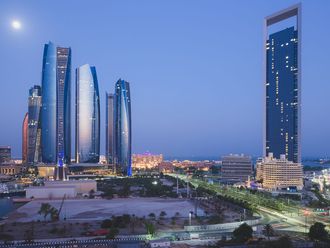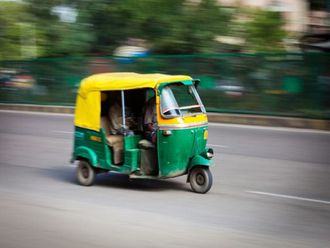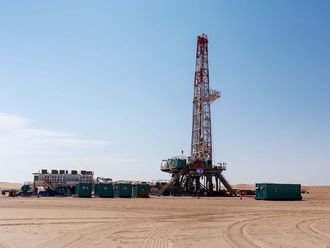Abu Dhabi: The Abu Dhabi Future Energy Company (Masdar) said yesterday it had signed an agreement with Gulf Petrochemical Industries Co (GPIC), to monetise the emission reduction associated with carbon dioxide (CO2) capture and recycling at GPIC's fertiliser facility in Bahrain.
The Bahrain project will be developed under the Kyoto Protocol's Clean Development Mechanism (CDM). It will capture carbon dioxide from flue gas and then recycle the captured gas as feedstock in the production of urea and methanol.
The Bahrain project is expected to reduce more than 100,000 tonnes of carbon dioxide equivalent per year as of 2010, said Masdar in a statement.
Masdar is mandated by the Abu Dhabi government to undertake and drive its multi-billion dollar clean energy Masdar Initiative. In January 2008, Abu Dhabi announced it will invest $15 billion in Masdar, the largest single government investment of its kind.
"We not only want to reduce carbon emissions in the UAE, but also in countries that comprise the Gulf Cooperation Council [GCC]. This is not our first such initiative outside the UAE, we have a number of other initiatives outside the country," Sultan Al Jaber, Masdar's chief executive officer, told Gulf News.
"We expect this project to pave the way for more carbon reduction initiatives in the industry," the Masdar statement quoted Al Jaber as saying.
Mechanism
CDM is a regulatory mechanism governed and audited by the United Nations. CDM provides financial incentives to reduce greenhouse gas emissions in countries that do not have binding reduction commitments under the Kyoto Protocol, by turning emission reductions into tradable assets or Certified Emission Reductions (CERs).
Masdar said it will manage the CDM process leading to the project registration at the United Nations regulatory body - CDM Executive Board, a pre-requisite to the generation of CERs.
GPIC is a joint venture for the manufacture of fertilisers and petrochemicals, and is equally owned by the Government of the Kingdom of Bahrain, Saudi Basic Industries Corporation, and Petrochemical Industries Company, Kuwait. It manufactures fertilisers and petrochemicals, producing almost 1.5 million tons of ammonia, urea and methanol a year.












